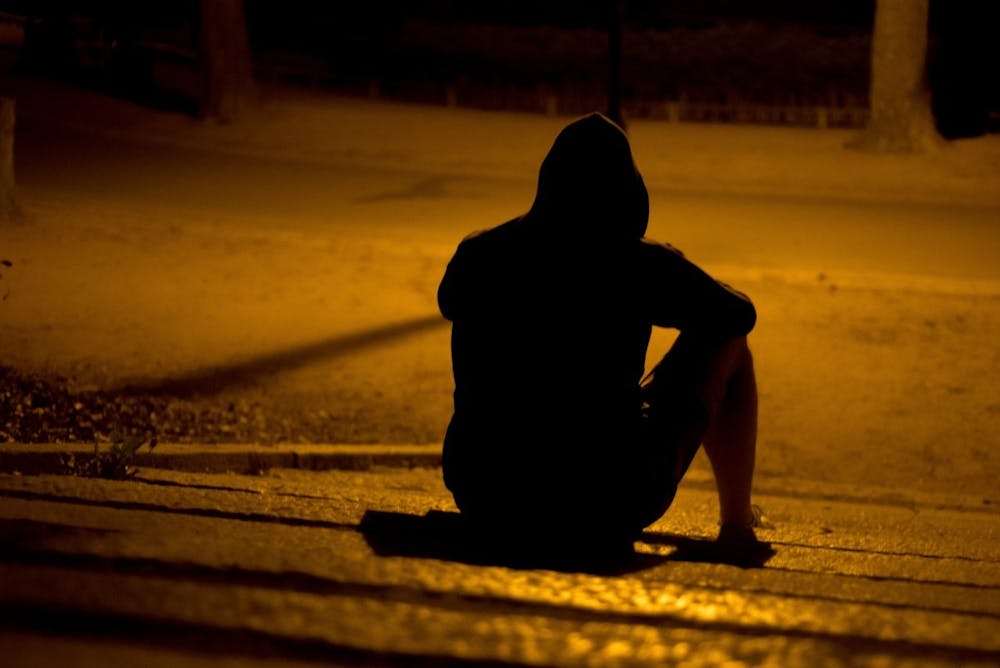I have been feeling quite lonely during these difficult, quarantined times. I am also unhealthily ashamed for “carrying on” about my loneliness — not only because so many of us are feeling lonely right now, but also because so many people are literally dying, and so many others are mourning their loved ones who, three months ago, seemed to be doing just fine.
Yet, I increasingly realize that hierarchizing suffering to delegitimate one’s own pain helps no one, and it is often an exercise in needless self-cruelty. Indeed, the psychological toll of the COVID-19 pandemic is real, serious, and, for many, unbearable; there is no privilege in enduring the bottomless depths of despair and mental illness, especially amid the public-health catastrophe that is currently upon us.
The vast emotional and relational deprivation plaguing the world has led me to think about loneliness more expansively — as both a medical ailment and a symptom of modern life that, pandemic or not, disproportionately brutalizes the most marginalized among us.
Accordingly, I keep thinking about the frequent and sometimes-lethal loneliness of the queer experience, which this pandemic has only intensified. COVID-19 has forced innumerable queer people, including some Princeton students, to return to abusive, loveless homes — to families and communities that demand they strip themselves of their genuine queerness and live a life of repression and suffocating isolation.
Of course, it did not take a pandemic for queer people, especially those who must conceal their identities to survive, to endure the loneliness of alienation, secrecy, and heterosexist, violent hate.
This realization compels me to reexamine the life of Brandon Teena, a trans man who, at the age of 21, was viciously gang-raped in the winter of 1993, on Christmas Eve, and then murdered a week later, in Falls City, Neb. — depicted as a rural, poor, no-way-out ghost town.
Recently, I watched, for the second time around, Kimberly Peirce’s haunting “Boys Don’t Cry,” a 1999 drama that documents Brandon’s final days as, essentially, a tragic love story.
After journeying to Falls City with acquaintances he met at a bar, Brandon, lonesome and often on the run, is introduced to Lana, who initially believes that Brandon is a cisgender man. The two eventually fall in love, and Brandon ultimately tells Lana of his non-cisness, which he labels, erroneously, as a “a birth defect.” (The words “trans” and “transgender” are never spoken in the film.)

It seems that, for the first and last time in his young life, Brandon found the intimacy he had long craved. The two dream of marrying and running away together; on the night of Brandon’s murder, the two have sex, and plan to escape Falls City for Lincoln, Neb.
“Tomorrow,” Brandon memorably rejoices, “you and I will be eatin’ breakfast in Lincoln.”
Lana, though, gets cold feet, hesitating about leaving, which leads Brandon to gently implore her to, no matter what, “[j]ust make sure you get out, okay?” Then, Brandon is hunted down by his two rapists — friends of his and Lana, who attacked Brandon the week before after discovering he was (in the normative sense) female-bodied. The rapists, presuming Brandon reported them to law enforcement, execute him in front of Lana.
Some critics have regarded the film, given its brutality, as exploitative. Others have contended that the film further normalizes the gender binary. But many of the ostensibly exploitative, gender-normative moments in the film actually function to render visible Brandon’s loneliness and his effortful self-containment of his identity.

For example, when Brandon performs cunnilingus on Lana for the first time, Lana’s ecstatic facial expression occupies the camera, while Brandon exits the frame as he downwardly embraces her body. One could all too easily dismiss this scene as yet another example of Hollywood throwing a bone to a cis, heteromasculine audience eager to indulge in a pornographic representation of female sexuality. Such a dismissal, however, misses the point.
In reality, the scene, far from reductively pornographic, serves to demonstrate Brandon’s erasure and aloneness. The camera consciously abandons Brandon, in favor of Lana, because, even amid a rare moment of intimate connection, he, like many other trans people, cannot be truly seen by his lover, for his very existence depends on bodily opacity.
Brandon must remain fundamentally alienated from his authentic self, especially in dangerously vulnerable erotic contexts, which is why he performs oral sex fully clothed and, at first, does not allow Lana to reciprocate: the transphobic social environment he inhabits refuses to tolerate, much less accept, the thought of a trans man assertively bearing his non-cisness — physically and otherwise — for the world to see.
The camera conforms to a heteromasculine gaze because it has nowhere else to go.
Of course, this is not to say that the film is flawlessly unproblematic or beyond critique. But regardless, “Boys Don’t Cry,” and, more importantly, the life of Brandon Teena, provides a crucial blueprint for understanding queer — and especially, trans — loneliness. For some, the COVID-19 quarantine has been their first experience of long-term, severe loneliness — their first experience of feeling unseen, unwanted, and thoroughly distant from any genuine outlet of intimacy. Yet for queer people, and many others, loneliness is an everyday, institutionalized experience: a way of life and, sometimes, a necessity for survival, whether or not a pandemic is ravaging the globe.
It is heartening that, amid this pandemic, we are increasingly having frank conversations — on Tiger Confessions, on Tinder and Grindr, in virtual therapy sessions, and elsewhere — about loneliness, depression, and other distressing mental-health experiences. But it is also crucial to keep in mind that countless people experience loneliness not just under extraordinary, historic circumstances, but every day of their lives. When simply being yourself means risking your very existence, the state of quarantine — the state of having to hide, the state of abandonment, the state of feeling all alone — is endless.
Samuel Aftel is a senior from East Northport, N.Y. He can be reached at saftel@princeton.edu.








